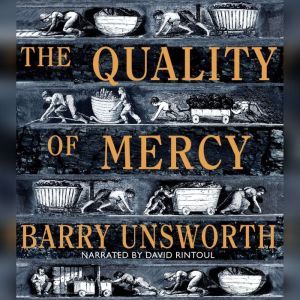Quotes
“Unsworth is one of the best historical novelists on either side of the Atlantic…His vast knowledge of eighteenth-century social and material conditions creates a rich and strange rendering of daily life that’s utterly persuasive.”
New York Times Book Review
“Unsworth is one of the greatest living historical novelists, and this is what he does best: he entices us back into a past gloriously appointed with archival detail and moral complexity…[The Quality of Mercy] is another engaging demonstration of the talent that’s made Unsworth one of the very few writers to appear on the Booker shortlist three times. His sentences recall the sharp detail, moral sensitivity, and ready wit of Charles Dickens. But his sense of the lumbering, uneven gait of social progress is more sophisticated, more tempered, one might say, by history.” Washington Post
“Deeply moving…Unsworth brings his characters together with authority and grace. As with all of his historical novels, he conveys the sights, sounds, and smells of life in another century without the slightest hint of pedantry.” Wall Street Journal
“Instantly compelling and impeccably written…Line by line, Unsworth is a vigorous and precise writer.” Los Angeles Times
“Told with bite and freshness. Unsworth, one of the most ingenious and varied of today’s British writers, makes his scenes not just vivid but microscopically vivid—we see not only their visible life but the invisible life that pulsates beneath. But what may be more remarkable is the creative subversion he works in his characters…Unsworth gives his figures glittering definition, and then leaves them open and undefined.” Boston Globe
“Unsworth’s writing is as rich and authoritative as ever, his eye for the period detail as judicious.” Guardian (London)
“Unsworth’s is a vigorous, clear-eyed approach to history, electrified by his complete feel for the period, his neat bathetic wit, and his natural gift for storytelling.” Telegraph (London)
“Immediately involving and immensely readable.” Daily Mail (London)
“Thought-provoking and resonant.” Denver Post
“Wryly, and with Austenesque delicacy, Unsworth presents the intricacies of love, competition, and other timeless human emotions…Having invented his own brand of historical fiction, characterized by research, imagination, and a literate narrator equally adept at penetrating a society’s values or an individual’s heart, Unsworth creates a novel that works both as period piece and indictment of industrial capitalism…It succeeds in presenting a compelling picture of a transitional moment in English history, not to mention in the development of the English character.” Publishers Weekly




